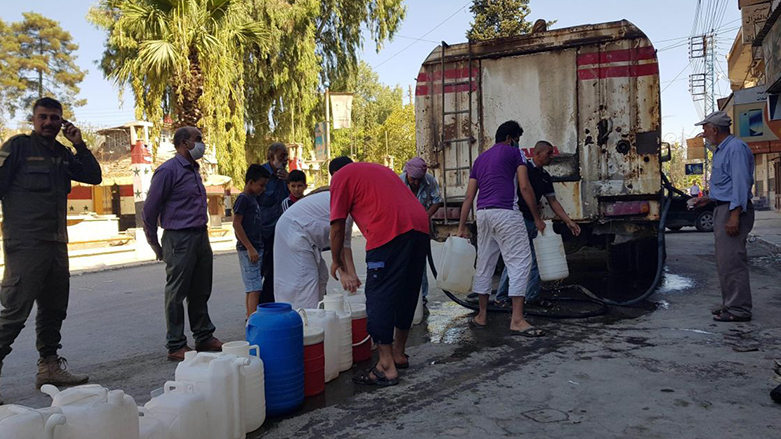Turkish authorities are exacerbating an acute water crisis: HRW
"All parties to the conflict need to ensure the right to clean water and health for everyone in Syria."

ERBIL (Kurdistan 24) – The Turkish authorities are exacerbating an acute water crisis that is believed to have given rise to the deadly cholera outbreak spreading across Syria, Human Rights Watch (HRW) said on Monday.
"All parties to the conflict need to ensure the right to clean water and health for everyone in Syria," HRW said.
"The Turkish authorities have failed to ensure an adequate water flow downstream into the Syrian-held portion of the Euphrates river and a consistent water supply from Allouk water station, a critical source of water located in an area of northern Syria under their control, to areas held by Kurdish-led forces in northeast Syria."
The cutting off water in the Alouk water station by Turkish-backed groups since they took control of the water station in Oct. 2019 has affected one million people in Hasaka province.
On Nov. 2, the water from Alouk to Hasakah province was cut again after the water flow was resumed for 10 days after a water cut for nearly two months, the UK-based Syrian Observatory for Human Rights (SOHR) reported.
“This devastating cholera outbreak will not be the last water-borne disease to impact Syrians if the country’s severe water problems are not immediately addressed, particularly in the northeast,” said Adam Coogle, deputy Middle East director at Human Rights Watch.
“Turkey can, and should, immediately stop aggravating Syria’s water crisis," he added.
HRW said dire water crisis afflicting northeast Syria most noticeably since late 2020 has been brought on by several factors including dangerously low levels of water flowing into the Syria-held portion of the Euphrates river from Turkey, on which more than five million people in Syria directly depend for their water supply.
Read More: Northeastern Syria is witnessing a surge in cholera infections and deaths: STJ
A poor rainfall season and disruptions at the Allouk water station, which serves hundreds of thousands of people in the region, have also contributed to the cholera crisis.